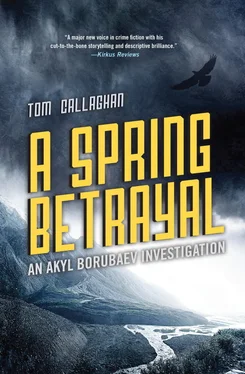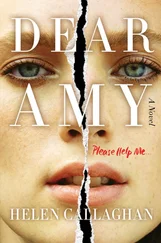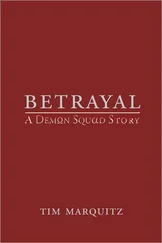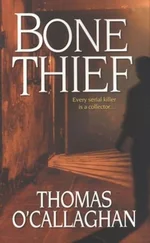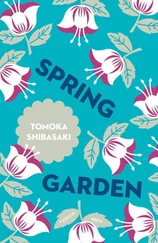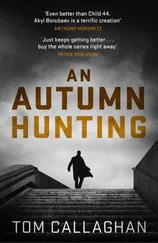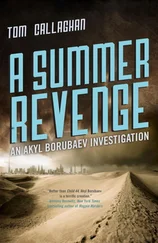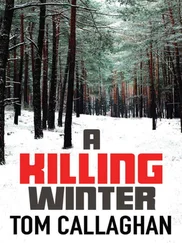I did my best to shift my weight off the spare, tried to get more comfortable. But comfort is a relative term when you’re tied up. I could feel the rim of the wheel pressing against my knee, and heard my trousers snag and tear as I levered myself backward. I moved around a little more, and rolled forward slightly, until I could place my thumbs against the wheel rim. Cold metal, a sharp jagged edge maybe a centimeter long, where a stone or rock must have hit it. One of the unexpected benefits of living in a country with potholed roads. I rubbed my thumbs against the cold metal, felt it scratch and tear at my skin, drawing blood. It wasn’t much of a chance, but it was all I had.
I shifted position once more, until I was lying face down, ass up in the air, my thumbs against the metal. I started to saw at the plastic restraint tying my thumbs together, wondering how much time I’d have. Every time the car took a corner, it threw me backward, and I had to scramble back into position and start again.
In the darkness, it was hard to guess the exact spot, and after a few minutes, the metal was slick with blood. The pain was a fire biting into my flesh with each stroke of the metal against plastic. But I carried on sawing away. Maybe I’d lose the use of my thumbs, but that was the very least of my worries. God only knew what I’d done to my toe, but then I wasn’t planning on playing football anyway. But I sawed on for what felt like a couple of hours, until I felt the restraint suddenly fall apart. I sucked at my thumb, my tongue running along the length of the gash, my mouth filling with blood and skin.
With my hands free, I pulled off the hood, took out my cigarettes and matches. I resisted the temptation to light up, struck a match instead.
It took a couple of matches before my eyes got used to the sudden flare, and I was worried about setting fire to a petrol can, so I made sure each match was safely out before I lit another.
I’d never taken a ride in a car trunk before, and it wasn’t anything anyone would want to write to relatives about. The usual debris lay in a heap to one side, including a couple of blankets. I was a little pissed off no one had thought to spread them out to make my journey a little less uncomfortable. I was definitely going to complain to the tour operator. A tire lever looked like a suitable way to make my point, but I quickly decided against that. Whoever opened the trunk wasn’t going to be standing there, wondering what I was doing, as I clambered out, tire lever in hand, and took my best shot.
Instead, I reached for the package I’d found back in my apartment and started to pick at the tape I’d used to seal it. What was inside was going to get me out of that car. Not a lockpick, not a saw. Two knives, but not just ordinary kitchen knives.
These were Uighur knives.
For those who don’t know, Uighur blades are the Central Asian knife equivalent of the Japanese Samurai sword, the ultimate combination of precision steel with age-old craftsmanship. They say if you hold a Uighur knife up in the air and let the wind blow a silk scarf across the blade, the silk falls into two pieces. If it doesn’t, the knife is broken up and the long process of manufacture begins again.
I don’t know if there’s any truth to the story, never having had a silk scarf to try it out, but they’re fearsome weapons all the same.
The Uighurs live on the other side of the Torugart Pass which leads from Kyrgyzstan to China, and knife-making is one of their proudest traditions, one that goes back for centuries. Every Uighur carries at least one knife, to use for everything from halal slaughter to preparing fruit and vegetables. The craft is usually handed down from father to son, and the Uighur take great pride in the beauty of their knives, as well as their practicality, with handles decorated with inlays of shell, bone, and semi-precious stones. But mine were different, very different.
Some years ago, I’d helped out an elderly Uighur man. He’d lived for years in a tiny apartment in one of the older, more decrepit blocks in Alamedin, but the landlord was threatening to throw him out. A couple of heavies tried to persuade the Uighur to seek new lodgings. One of them lost a thumb and index finger when he discovered just how sharp the Uighurs make their knives.
He returned the next day, this time with a Makarov, presumably having practiced with his other trigger finger. I took his gun away from him, and broke his remaining index finger in all three bones while doing so. I didn’t feel bad about it: he wasn’t planning on typing his memoirs.
The old man was grateful, said so in broken Kyrgyz. I was puzzled when he took hold of my hands, judging the length of my fingers, the muscles in my palms, the flexibility of my wrists.
Six months later, the old man appeared at Sverdlovsky station, and with a great deal of broken-toothed smiling pushed a thin package into the inside pocket of my jacket. I started to reach for it, but he looked worried and shook his head, his gold teeth catching the light. Our little secret.
Once he’d left, I went back to my office, opened the package. Two knives, but not traditional decorated Uighur knives. These were brutal-looking unornamented throwing knives, handle-heavy, obviously handmade. They were made for fighting, for killing, nothing else. They fit perfectly in my palm, and I understood why the old man had taken so much time inspecting my hands. I took one, weighed it, threw it at my office door. The thud as it hit could have been heard in the street, and the quiver it made as it spun through the air set my teeth on edge.
I bought a couple of dartboards, glued them together, fastened them to the back of the bedroom door, practiced my knife-throwing routine until I got pretty good, at least from about eight feet away. At first, Chinara would ask when I was going to run away to join the circus, but that joke got old very quickly. Then she started to complain about the noise, and why didn’t I get a quieter hobby.
I said I’d get rid of the knives. Which I did, after a fashion, stashing them away in their hiding place, hoping I wouldn’t ever need them.
If only life were that peaceful. But it rarely is.
I used one knife to cut through the remaining restraint, and stretched as best I could in the confined space, while the car moved forward toward what promised to be the end of my life. I found a roll of duct tape and strapped one of the knives against my back, under my shirt, and held the other ready for a forward throw. A lot of the skill lies in the wrist, the sudden snap and release that triggers the blade forward. I’d practiced long enough on the dartboard, but never on a person. I wasn’t worried I might freeze when the time came to throw; self-preservation does away with all that nonsense. I was only afraid I might miss. Of course, once you’ve thrown your knife, you’ve effectively disarmed yourself, so I clutched the tire iron with my other hand. The blood from my thumb made it slippery and difficult to grip, but it was better than getting out of the car trunk with nothing more deadly than a smile.
Squatting in the dark, waiting to kill or be killed, memories reeled past me, as if to remind me of the times I felt immortal, when the world was mine. Pulling Chinara toward me for a long kiss in the cold waters of Lake Issyk-Kul, dazzled by light reflected from the mountain snow. Joy that never seemed to end, pain that never seemed to stop. The livid scar that commemorated Chinara’s cancer. The corpses that showed how bottles and blades and bullets can drain the life out of anyone. And the taste of fear in my mouth, sour like cheap wine and copper wire.
Then the car turned, slowed, the clang of gates closing behind us.
Time to die seemed the most likely option. I would have liked more years, children to scold, grandchildren to pamper. But we all get what’s coming to us, in my case, sooner rather than later.
Читать дальше
